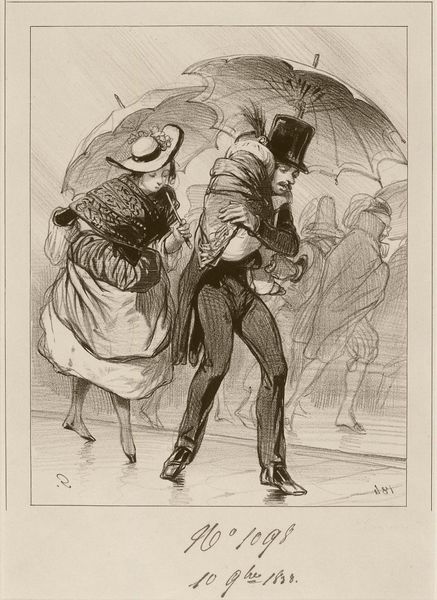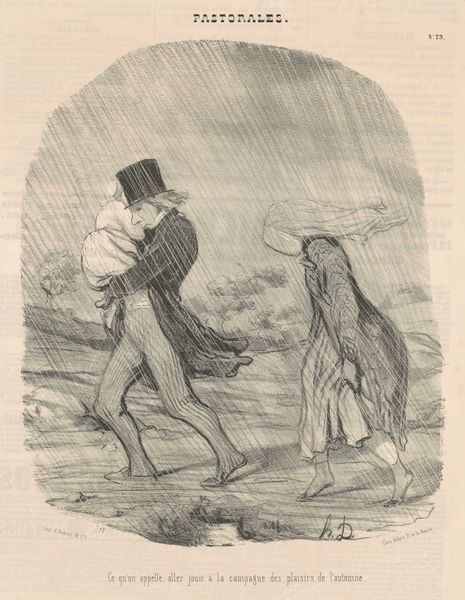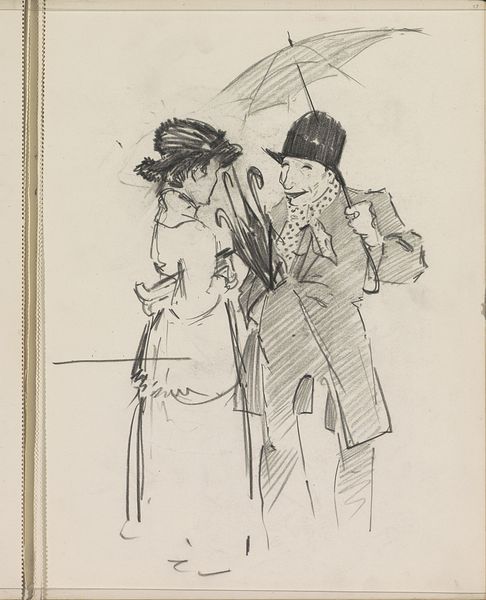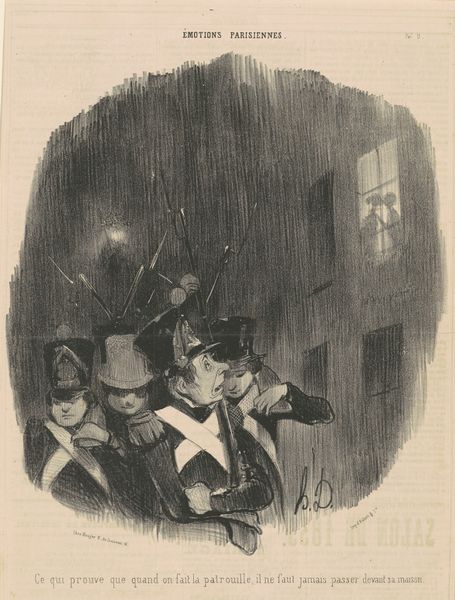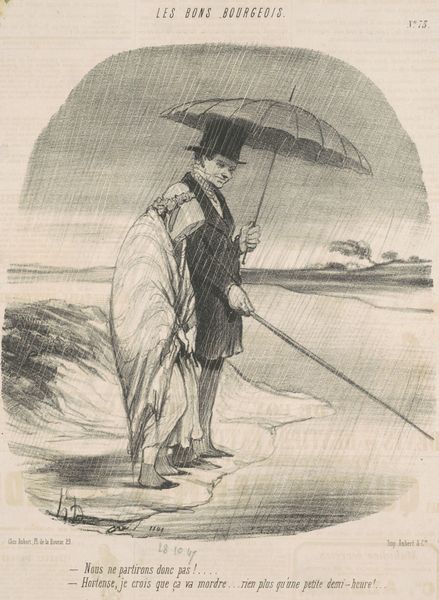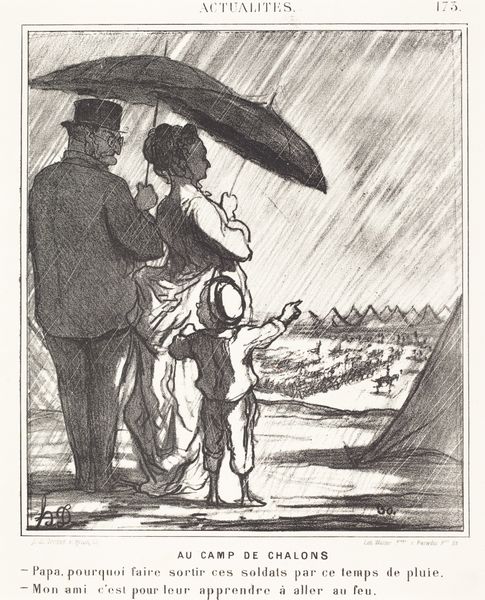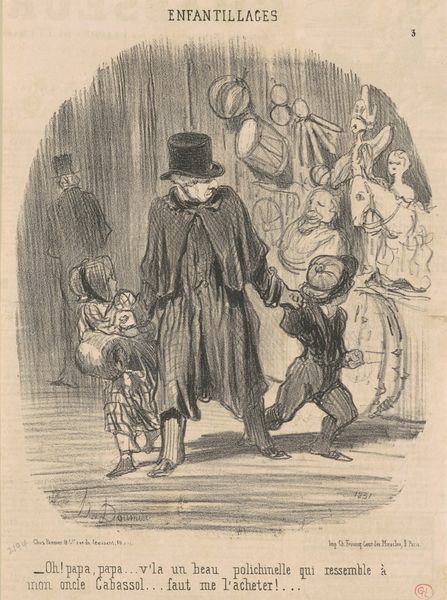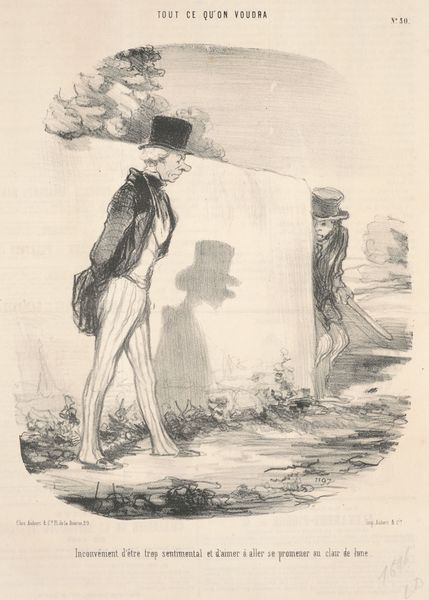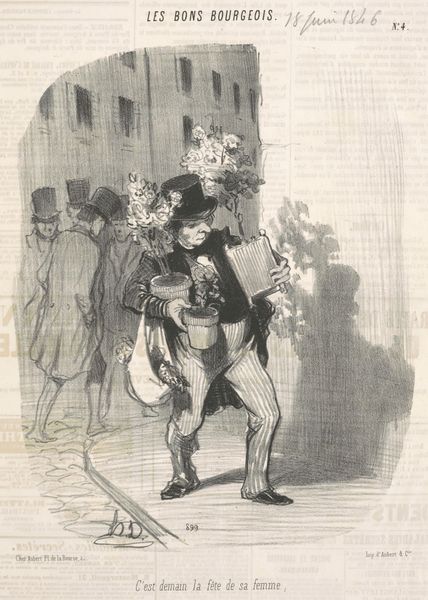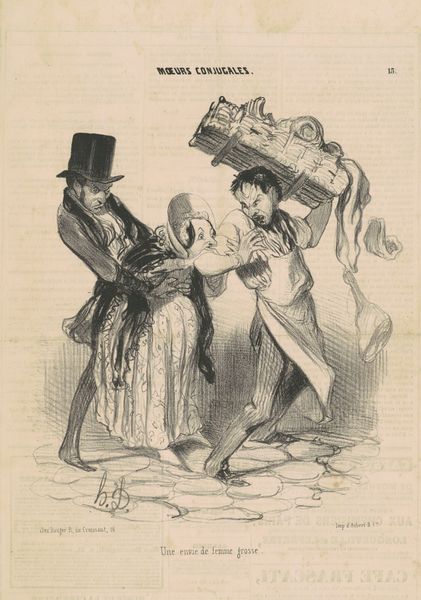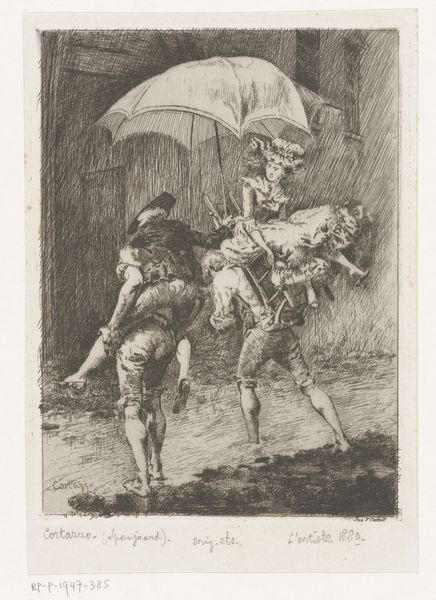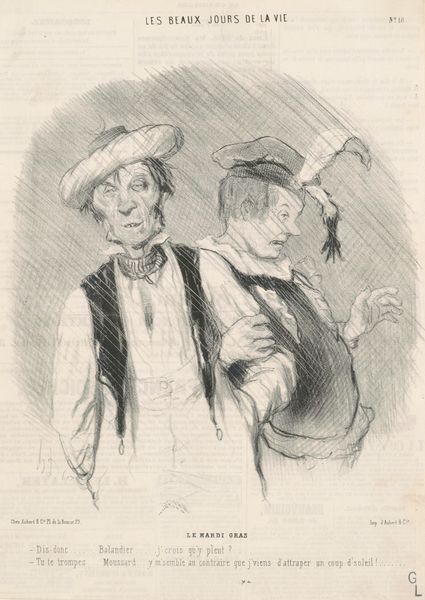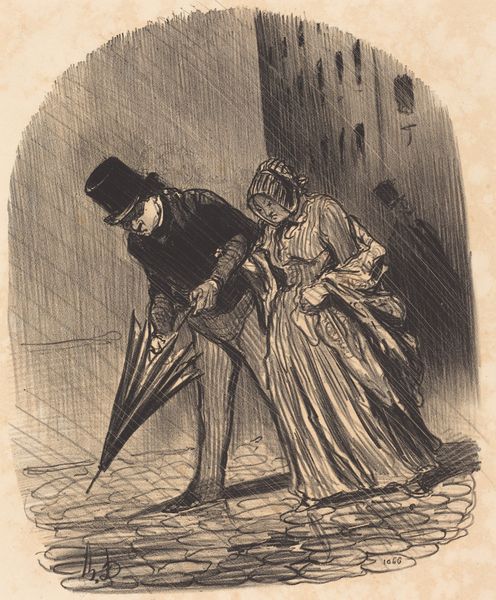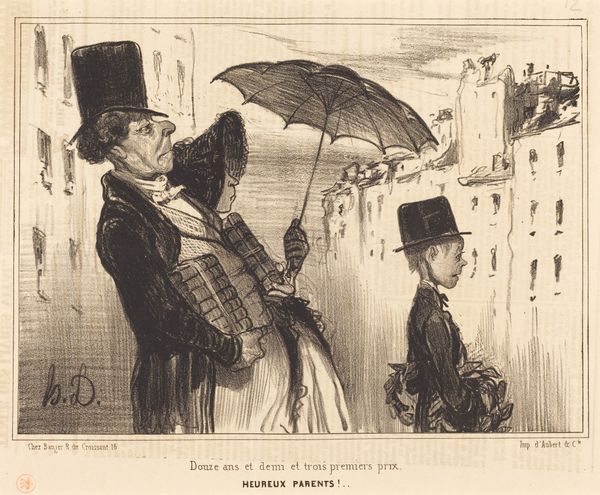
lithograph, print
#
lithograph
# print
#
modern-moral-subject
#
caricature
#
romanticism
#
genre-painting
Copyright: National Gallery of Art: CC0 1.0
Curator: Here we have Honoré Daumier’s lithograph, dating to 1839, titled "Tu te plains toujours, tu n'es jamais content," which translates to "You always complain, you're never satisfied." It's quite the statement right from the start! Editor: Immediately striking. The unrelenting rain practically screams off the page. I see figures huddled together, seemingly battling against both the elements and perhaps each other. The body language alone speaks volumes. Curator: Absolutely. Daumier masterfully captures the social commentary of the time through these everyday scenes. This print belongs to a larger series known as "Moeurs Conjugales," addressing the morals of marriage and domestic life within the Parisian Bourgeoisie. The image hints at some harsh realities behind the surface of domestic life in 19th century France. Editor: Note how the umbrella, typically a symbol of shelter and unity, seems barely adequate, further symbolizing some sense of failing protection or harmony within this family unit. Also, look at the averted gazes, everyone seemingly trapped in their discomfort. Even the child on the right turns away. Is this alienation a recurring theme for Daumier? Curator: Precisely. Daumier often employs the trope of bourgeois discomfort. It's hard not to read this as commentary on class tensions and familial discontent bubbling beneath the surface. The very act of observing, printing, and circulating such imagery provides a platform for social reflection and potentially even dissent. Editor: Beyond the sociological aspect, the deluge evokes primordial anxieties; think of cleansing storms, the potential destruction…Is Daumier perhaps hinting at some cataclysmic internal shift through this meteorological metaphor? I note that throughout history, storms tend to be markers of time and change in cultural storytelling. Curator: That's a fantastic insight. Considering this was created during the Romanticism movement, it makes sense Daumier tapped into such heightened emotional displays. The imagery of raw nature reflected intense interior struggles—certainly playing into the idea of individual turmoil mirroring a collective unrest. Editor: It makes you wonder about our modern symbols of family struggles. A cancelled vacation perhaps, or maybe just…bad weather? Curator: I agree, the genius lies in how universally applicable this image is. The issues might manifest differently, but human unhappiness seems to persevere! Editor: True that. Even through all those rain clouds.
Comments
No comments
Be the first to comment and join the conversation on the ultimate creative platform.
